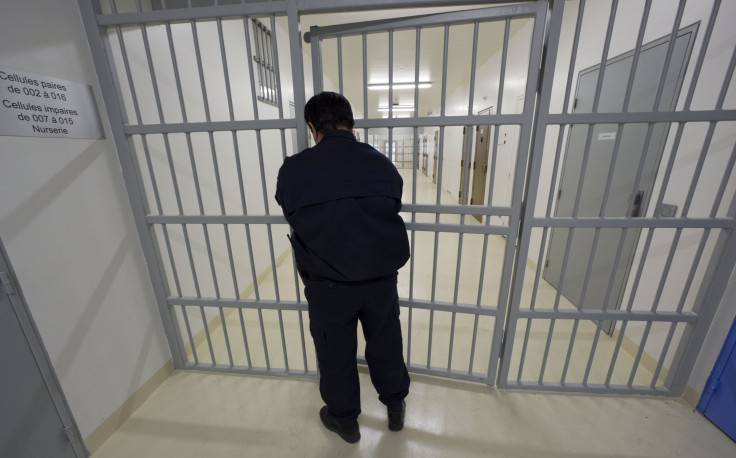Les Misérables: French Prisons Bursting At The Seams

Prisons in Europe are crowded, and their getting even more crowded, raising fears of security and concerns about human rights in an environment of tougher sentencing guidelines and economic paralysis.
Last month, the Council of Europe, a legal and human rights international body wholly separate from the European Union, issued a report revealing that in 2011 European prisons were nearing full capacity, with 99.5 inmates per 100 places, a 1 percent jump from the prior year.
In France, the situation has become particularly precarious. Between 2002 and 2011, the number of inmates languishing in French correctional facilities jumped by 7 percent to the point where French jails are bursting at the seams -- nearly 118 inmates per 100 places as of 2013, according to the International Centre of Prison Studies.
Last month, the number of French prisoners reached a new all-time high -- almost 68,000 inmates were incarcerated, of whom 17,000 were still awaiting trials while in detention. France’s 191 national prisons are only designed to hold about 57,000 inmates. (In 2001, France had about 44,600 prisoners.)
Part of the surge in France’s sardine-like prisons, along with rising crime rates, can be attributed to the policies of former president Nicolas Sarkozy, who wanted to get tough on criminals by introducing mandatory minimum sentences from repeat offenders. Under the new rules, a repeat offender is now obligated to serve at least one year behind bars if his original sentence is three years imprisonment.
Christiane Taubira, the minister of Justice under the new Socialist government of Sarkozy’s successor Francois Hollande, has asked the judiciary to consider the overcrowded condition of prisons when handing out jail terms. In response, they said that “they would judge examining the crime and the personality of the person accused, and not based on the state of the prisons.”
Not surprisingly, overcrowded prisons, in tandem with the extraordinary number of inmates in pre-trial detentions, is exerting psychological pressure on many inmates -- leading to a spate of suicides.
According to Humanity in Action, a New York-based human rights organization, the most vulnerable are inmates in pre-trial. As they are waiting to go before the judge, the pressure and anxiety can become overwhelming -- almost one-quarter (24 percent) of this sub-section of the prison population try to commit suicide within 48 hours of their incarceration.
In 2010, France recorded 15.5 suicides per 10,000 inmates -- one of the highest such prison suicide rates in Europe. In some cases, the families of the suicide victims have gone to court and demanded compensation -- recently, the government was forced to pay 25,000 euros ($33,285) to the family of a 32-year-old female inmate had who killed herself in 2007. The prison’s administration entrusted to her supervision was accused of “not taking the necessary and adapted measures” to secure the life of the young woman.
Overcrowding in prisons also raised fears of security within incarceration facilities and danger to guards and wardens. Last month, prison officials, who typically shy away from public protests, demonstrated in front of the Palais de Justice in Paris to denounce the overcrowding in prisons and the resultant poor security conditions there.
Indeed, this issue of compromised security came to the fore recently after the spectacular escape of Redoine Faid, a French-Algerian gangster, who fled the Sequedin prison in northern France in mid-April by holding wardens hostage using explosives to blast through five prison doors. The fugitive Faid was re-arrested on May 29.
“We are the first ones to ask for good conditions of incarceration for inmates,” a representative for the prison services union SNP-FO-Direction, which participated in the protest, told the French newspaper Le Parisien, adding that prisons suffer from a “lack of resources.”
But easing prison overcrowding, improving security in prisons will come slowly, given France’s precarious financial condition. Even renovating existing prisons (an idea with some political currency) would be expensive.
For example, in Marseille, the prison called “Les Beaumettes,” is notorious for lack of proving hygiene -- some cells do not even have toilets and are frequently overcrowded.
“The first solution is to develop alternatives to incarceration, when the latter is not strictly necessary,” said Andre Vallini, a French Socialist senator, to the newspaper Le Figaro. “Then, and this is not contradictory, we need to build new prisons.”
The paper reported that France would need at least 20,000 new prison beds to begin to ease overcrowding.
Taubira has also indicated that she wanted to terminate the “minimum sentences for repeat offenders” rule as introduced by Sarkozy. However, judges do not believe such a measure will be effective -- and seeing that there is no alternative proposed to this law, they keep applying it.
But France’s prison problems are relatively modest compared to countries in eastern and southern Europe – for example in Serbia, there are 157.6 inmates per 100 places, followed by Greece with 151.7 and Italy with 147.
Moreover, compared to the United States, the world’s leading incarcerator of people, European prisons are not quite as crisis-ridden. In the U.S., there were 937 adults incarcerated for every 100,000 inhabitants in 2011, according to the U.S. Department of Justice (versus only 154 in Europe).
In 2008, the U.S. was holding around a quarter of the world’s prison inmates, while the country only accounts for about 5 percent of the world’s population. And some prisons in the US are also overcrowded, for example, California’s state prisons are operating at 137.5 percent of their capacity, according to The Economist.
Still, France, and Europe as a whole, as the number of inmates climb, they will have to find solutions to their prison woes very quickly.
© Copyright IBTimes 2025. All rights reserved.






















